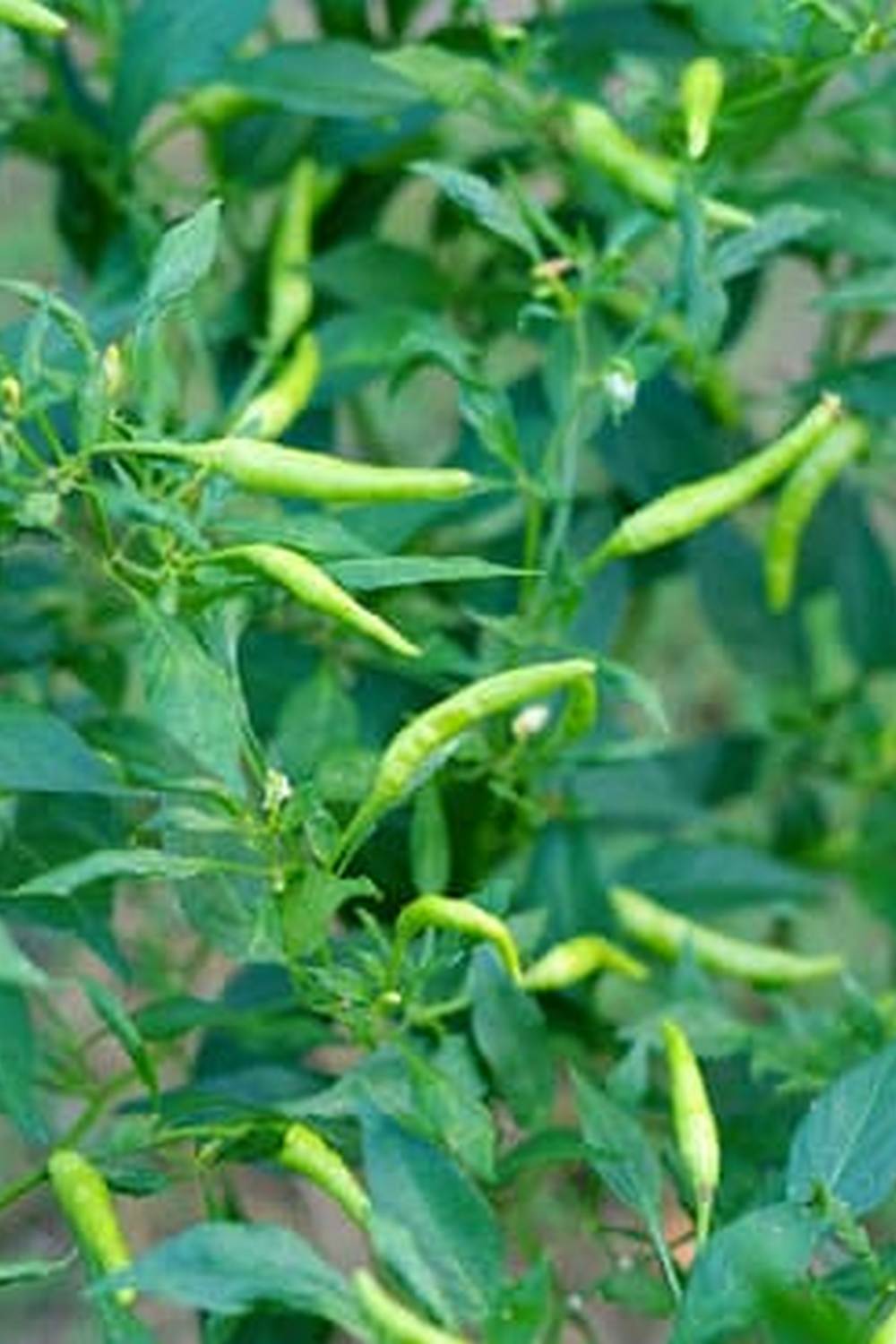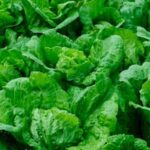Are you looking to improve the health and productivity of your vegetable garden? One simple solution that can make a big difference is using mulch. Mulch plays a crucial role in maintaining soil moisture, preventing weed growth, and regulating soil temperature. In this article, we will explore the various benefits of using mulch in vegetable gardens, the different types of mulch suitable for this purpose, as well as how to apply and maintain it effectively.
Using mulch in vegetable gardens has become increasingly popular among gardeners due to its numerous benefits. Whether you are growing tomatoes, peppers, lettuce, or any other type of vegetable, incorporating mulch can significantly enhance their growth and yield. From improving soil structure to reducing water usage, mulch serves as a valuable asset for any vegetable garden.
In the following sections, we will delve into the specific benefits of using mulch in vegetable gardens and discuss the different types that are most suitable for this purpose. Additionally, we will provide useful tips on how to apply and maintain mulch in your garden while highlighting common mistakes to avoid. Ultimately, understanding the impact of mulch on soil health and learning how to maximize its benefits is key to achieving a thriving vegetable garden.
Benefits of Using Mulch in Vegetable Gardens
Mulching is a fundamental practice in vegetable gardens that offers numerous benefits to the plants, soil, and overall garden environment. One of the primary advantages of using mulch in vegetable gardens is its ability to conserve moisture by reducing evaporation from the soil.
This is especially beneficial during hot and dry periods, as it helps ensure that the vegetables have a constant supply of water for proper growth and development. Additionally, mulch acts as a protective barrier, shielding the soil from extreme temperatures and preventing erosion.
Another key benefit of using mulch in vegetable gardens is its capacity to suppress weeds. By creating a barrier that inhibits weed growth, mulch helps minimize competition for nutrients and water among the vegetable plants. This not only reduces the need for manual weeding but also promotes healthier and more robust vegetable crops.
Furthermore, mulch plays a crucial role in maintaining soil health and fertility in vegetable gardens. As organic mulch materials decompose over time, they contribute valuable nutrients to the soil, enhancing its overall quality. Additionally, mulch can help regulate temperature fluctuations in the soil, creating a more stable and conducive environment for root development. Ultimately, these benefits work together to support healthy plant growth and improve yield in vegetable gardens.
Types of Mulch Suitable for Vegetable Gardens
When it comes to choosing the right mulch for your vegetable garden, there are several options to consider. Each type of mulch has its own set of benefits and considerations, so it’s important to choose the one that best suits your garden’s needs.
Here are some types of mulch that are suitable for vegetable gardens:
1. Straw: Straw is a popular choice for vegetable garden mulch as it is readily available and affordable. It helps to retain moisture, suppress weeds, and regulate soil temperature. When buying straw for mulching, make sure it is free from weed seeds.
2. Grass clippings: Grass clippings can also be used as mulch in vegetable gardens. They break down quickly, adding nutrients back into the soil. However, be cautious when using grass clippings as mulch if the grass has been treated with herbicides or pesticides.
3. Compost: Compost is a fantastic all-around option for mulching in vegetable gardens. It not only helps retain moisture and suppress weeds but also adds valuable organic matter and nutrients to the soil.
4. Wood chips: Wood chips can be an effective long-term mulching solution for vegetable gardens. They help maintain soil moisture and temperature while also contributing to improved soil structure as they break down over time.
When selecting the right type of mulch for your vegetable garden, consider factors such as availability, cost, and the specific needs of your plants. Keep in mind that some mulches may require additional maintenance or consideration due to their properties or source material.
How to Apply Mulch in Vegetable Gardens
After choosing the appropriate type of mulch for your vegetable garden, it’s important to know how to apply it effectively. Proper application of mulch can maximize its benefits and improve the overall health of your garden.
Here are some steps for applying mulch in your vegetable garden:
1. Prepare the soil: Before applying mulch, make sure the soil is well-watered and free from weeds. It’s also beneficial to add a layer of compost to provide additional nutrients to the soil.
2. Apply a thick layer: Spread a layer of mulch around 2-4 inches thick evenly across the surface of the soil. Be careful not to pile the mulch against plant stems as this can lead to moisture-related issues such as rot or disease.
3. Leave space around plants: When applying mulch, make sure to leave about an inch or two of space around the base of each plant to allow for proper air circulation and prevent moisture buildup close to the stems.
4. Replenish regularly: Mulch tends to break down over time, so it’s important to replenish it every year or as needed. This will ensure that your vegetable garden continues to benefit from the many advantages that mulch provides.
Applying mulch in your vegetable garden not only helps retain soil moisture and suppress weeds but also contributes towards improving overall soil structure and fertility. By following these simple steps, you can make the most out of using mulch in your vegetable garden.
Common Mistakes to Avoid When Mulching Vegetable Gardens
When it comes to mulching vegetable gardens, there are some common mistakes that gardeners should be aware of in order to maximize the benefits of using mulch. By avoiding these mistakes, you can ensure that your vegetable garden thrives and produces healthy, bountiful crops.
Using the Wrong Type of Mulch
One of the most common mistakes when mulching vegetable gardens is using the wrong type of mulch. Not all mulches are suitable for vegetable gardens, as some may contain weed seeds or pathogens that can harm your plants.
It’s important to choose a mulch that is organic and free from any harmful substances. Additionally, some types of mulch may not be suitable for certain vegetables, so it’s important to research which type of mulch is best for the specific vegetables you are growing.
Applying Too Much or Too Little Mulch
Another mistake that gardeners make when mulching their vegetable gardens is applying too much or too little mulch. Applying too much mulch can prevent water and air from reaching the soil, while applying too little may not provide enough insulation and protection for your plants. It’s important to find the right balance and apply an even layer of mulch around your vegetable plants.
Neglecting Weed Control
Some gardeners make the mistake of neglecting weed control when using mulch in their vegetable gardens. While mulch can help suppress weeds, it’s important to still regularly check for and remove any weeds that may pop up in your garden. Allowing weeds to thrive under the mulch can compete with your vegetable plants for nutrients and water, ultimately affecting their growth and productivity.
By being mindful of these common mistakes when using
Mulch Maintenance and Replacement in Vegetable Gardens
Mulch serves as a protective layer for the soil in vegetable gardens, and it is important to ensure that it is well-maintained and replaced when necessary. Proper maintenance and replacement of mulch can contribute to the overall health and productivity of the vegetable garden.
One key benefit of maintaining mulch in vegetable gardens is weed suppression. Over time, mulch may break down or be displaced, leading to gaps where weeds can easily take root. Regularly inspecting the mulch and replacing any areas that are thin or bare can help prevent weed growth, reducing the need for manual weeding and minimizing competition for nutrients among vegetable plants.
In addition to weed control, maintaining and replacing mulch in vegetable gardens also helps with moisture retention. A thick layer of mulch can reduce water evaporation from the soil, ensuring that the root systems of vegetable plants have consistent access to moisture. This is particularly beneficial during hot and dry periods, as it can help prevent water stress in the garden.
Proper maintenance of mulch can also contribute to soil health by providing a habitat for beneficial microorganisms. As organic mulch materials break down, they add valuable organic matter to the soil, improving its structure and fertility. Regularly replenishing the mulch layer ensures a continuous supply of organic material, promoting healthy soil ecosystems in vegetable gardens.
| Benefits | Mulching Tips |
|---|---|
| Weed suppression | Inspect mulch regularly and replace thin or bare areas |
| Moisture retention | Apply a thick layer of mulch to reduce water evaporation from the soil |
| Soil health | Replenish mulch layer regularly for continuous supply of organic material |
Impact of Mulch on Soil Health in Vegetable Gardens
When it comes to maintaining a healthy vegetable garden, the impact of mulch on soil health cannot be overstated. Mulch plays a crucial role in improving soil structure, retaining moisture, and enhancing overall soil fertility. By understanding how mulch can positively influence soil health, gardeners can make informed decisions about the type and application of mulch in their vegetable gardens.
One of the key impacts of mulch on soil health is its ability to regulate soil temperature. In hot weather, mulch helps to keep the soil cool by providing a protective barrier from direct sunlight. Conversely, in cooler weather, mulch acts as an insulator, preventing rapid temperature fluctuations that can stress plants and disrupt microbial activity in the soil. This thermal regulation provided by mulch creates an optimal environment for root growth and nutrient uptake in vegetable plants.
Moreover, the use of organic mulches such as straw, leaves, or compost in vegetable gardens can significantly improve soil structure over time. As organic mulch breaks down, it adds valuable organic matter to the soil, enhancing its ability to retain moisture and nutrients. This improvement in soil structure promotes better aeration and drainage while also supporting the growth of beneficial microorganisms essential for healthy plant development.
Furthermore, proper application of mulch can effectively suppress weed growth in vegetable gardens, thereby reducing competition for water and nutrients in the soil. This weed suppression not only promotes healthier plants but also minimizes the need for manual weeding, preserving the integrity of the soil structure. With these benefits considered, it is evident that implementing appropriate mulching practices can have a substantial positive impact on soil health in vegetable gardens.
| Impact of Mulch on Soil Health | Benefits |
|---|---|
| Regulates soil temperature | Promotes optimal root growth and nutrient uptake |
| Improves soil structure | Enhances moisture retention and supports microbial activity |
| Suppresses weed growth | Promotes healthier plants and reduces manual weeding |
Mulching Tips for Different Types of Vegetable Plants
When it comes to mulching different types of vegetable plants, it’s important to take into consideration the specific needs of each variety. Here are some mulching tips for common types of vegetable plants:
Root Vegetables
For root vegetables such as carrots, beets, and radishes, a light layer of mulch is recommended. This helps to maintain moisture in the soil while still allowing the roots to easily penetrate through the soil. Avoid using heavy or compacted mulch that could make it difficult for these vegetables to grow properly.
Leafy Greens
Leafy greens like lettuce, spinach, and kale benefit from a thicker layer of organic mulch. This helps to keep the soil cool and retain moisture, which is crucial for these types of plants. Just be sure not to pile the mulch up against the stems of the plants, as this can invite pests and disease.
Tomatoes and Peppers
Tomatoes and peppers thrive with a layer of organic mulch such as straw or shredded leaves. This helps to regulate soil temperature and moisture levels, while also reducing weed growth around these plants. Be mindful not to cover the base stem of these plants with mulch, as this can lead to rot.
By tailoring your mulching approach to the specific needs of different vegetable plants, you can maximize the benefits of using mulch in your vegetable garden. Whether it’s root vegetables, leafy greens, or fruiting plants like tomatoes and peppers, the right type and application of mulch can contribute significantly to their health and productivity.
Conclusion
In conclusion, utilizing mulch in your vegetable garden can greatly enhance the health and productivity of your plants. The benefits of using mulch are numerous, including conserving soil moisture, suppressing weed growth, maintaining soil temperature, and improving overall soil health. By selecting the appropriate type of mulch for your vegetable garden and applying it correctly, you can maximize these advantages and foster a thriving garden environment.
When choosing a suitable mulch for your vegetable garden, consider factors such as availability, cost, and specific plant needs. Organic mulches like straw, hay, grass clippings, or compost are excellent choices for enriching the soil with nutrients as they decompose over time. In contrast, inorganic mulches such as plastic sheeting or landscape fabric offer efficient weed suppression and moisture conservation.
Proper maintenance and replacement of mulch in your vegetable garden is essential to continue reaping its benefits. Regularly inspect the condition of your mulch and replenish it as needed to maintain an optimal growing environment for your plants. Remember that different types of vegetables may have unique requirements when it comes to mulching, so tailor your approach accordingly to ensure maximum success in your gardening endeavors.
Frequently Asked Questions
Is It OK to Put Mulch in a Vegetable Garden?
It is generally okay to put mulch in a vegetable garden as it can help retain moisture, suppress weeds, and regulate soil temperature. However, the type of mulch used and its application should be considered.
What Kind of Mulch Is Best for Vegetable Gardens?
The best mulch for vegetable gardens depends on the specific needs of the plants and the local climate. Organic options like straw, grass clippings, or shredded leaves can enrich the soil as they break down. Alternatively, plastic mulch can also be effective in controlling weeds and conserving moisture.
What Plants Should Not Be Mulched?
Certain plants may not benefit from mulching due to their specific requirements or susceptibility to certain diseases. For example, succulent plants such as cacti and some types of herbs like rosemary prefer well-drained soil and could suffer from excessive moisture retention caused by mulch.
Additionally, some trees like citrus are prone to trunk rot if mulch is piled up against their trunks.

If you’re looking to get into vegetable gardening, or are just looking for some tips on how to make your current garden better, then you’ve come to the right place! My name is Ethel and I have been gardening for years. In this blog, I’m going to share with you some of my best tips on how to create a successful vegetable garden.





